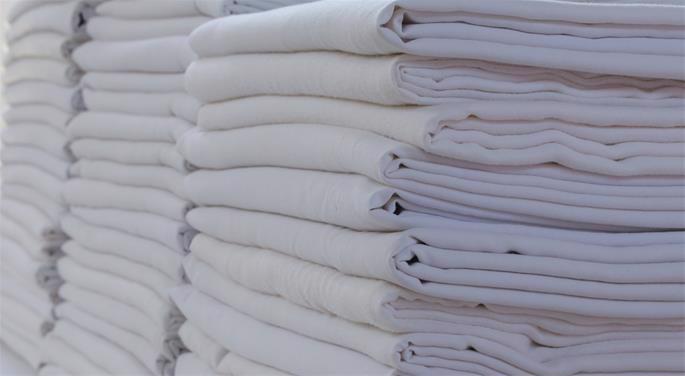“So Joseph brought some linen cloth, took down the body, wrapped it in linen, and placed it in a top cut out of rock.” (Mark 15:46 NIV)
I’m fixing to preach on Joseph of Arimethea this Sunday, so I’ve spent the last several days sitting in his story across all the gospels. In my research, I learned that Jews bury all their dead in white linen cloths. But this wasn’t always the case. In fact, up through Jesus’ time, there remained a lot of competition in burial accommodations, to a point that a funeral could place quite a financial strain on the grieving families..

It was believed that the deceases would wear whatever they were buried in for the extend of their afterlife, so you can imagine the implications of such a notion. The wealthy got cutthroat and final attire became more and more extravagant. Of course, the poor were left behind in this trend; essentially pre-labeled for the eternal affairs by their simple garments.
As I came across this scripture again this morning, I had an ah-ha moment. Recall how the Israelites had served 400 years as slaves in Egypt. Now, Egyptians had big belief systems about the afterlife, as evidenced by their pyramids and mummies. They believed wealth and possessions could be retained, and thus buried their dead in booby-trapped treasure troves to prevent thievery and protect the departed’s assets. It seems the Egyptian thinking had leached it’s way into Jewish culture, to the detriment of their faith and relationships. The Old Testament assures us: “Naked I cam from mother’s womb and naked I will depart. The Lord gave and the Lord has taken away; may the name of the Lord be praised.” (Job 1:21 NIV) and “All go to the same place; all come from dust and to dust all return.” (Ecclesiastes 3:20 NIV).
In 54 AD a Rabbi by the name of Gamliel wielded his death as a teaching tool. Though he was a wealthy and respected member of the Sanhedrin, he chose to be buried in a simple white linen cloth. His influence was so great, linen quickly became the burial custom for all Jewish people and remains so to this day. It was probably a great relief to an occupied people, one less monetary obligation to uphold with the Romans taxing them to death. Additionally, it feels like an homage to our Jesus, who was laid out in white linen.
I think about our Lord, wrapped in a length of cloth and laid in a cold, stone tomb. A pauper’s garb is just one more reminder of His humanity. Death is the great equalizer, is it not? No matter how powerful or pitiful we might be; death comes for us all. Whether we are wealthy or penniless, clever or simple-minded, kind-hearted or ugly to everyone, well-prepared or caught off guard completely; death eventually finds us and exerts it’s authority over all flesh.
Jesus was swaddled as a beggar but buried as a king. His linen was the mark of poverty, but His new tomb was a tremendous sign of affluence. Jesus’ ending was very much like His beginning, wasn’t it? Wrapped in shepherd swaddling cloths and gifted with gold, Jesus was marked as Son of Man and Son of God from the very start. Again, His burial reminds us that He is as much man as He is God. He experienced death, but He was victorious in it, so we might be also.
Today the linen shroud reminds me of the futility of wealth. We can bankrupt our souls chasing dollars and cents. The problem is, though, by the time we reach the grave, it is utterly worthless to us. We have another option, though. We can pour out our lives in pursuit of our Savior. We can spend our short excursion on earth as He did: freed from possessions and, instead, passionate about people.
Jesus was driven by relationship alone: first and foremost with His Father, and then everyone else who crossed His path. He invested His thirty-three short years in the only soil that would stand the test of eternity: souls. He went to the cross penniless, but He was relationally rich. His life and death stand before us as an example of the rightest way to live.
“Do not store up for yourselves treasures on earth, where moths and vermin destroy, and where thieves break in and steal. But store up for yourselves treasure in heaven where moths and vermin do not destroy, and where thieves do not break in and steal. for where your treasure is, there you heart will be also.” (Matthew 6:19-21 NIV)
Lord, help us. Stuff is so enticing and tactile. We can touch it, feel it, accrue it. Relationships are far more intangible. They are living organisms; tough to plant and maintain. It’s challenging to measure their success or health over the long haul. Forgive us for getting it wrong: for using people and loving stuff. Thank You for reminding us today of what we can hold on to in the next life and what will simply fade away. Help us to prioritize what matters in the light of eternity. Equip us to love You and others well. Help us hold our treasure loosely for Kingdom’s sake. Amen.